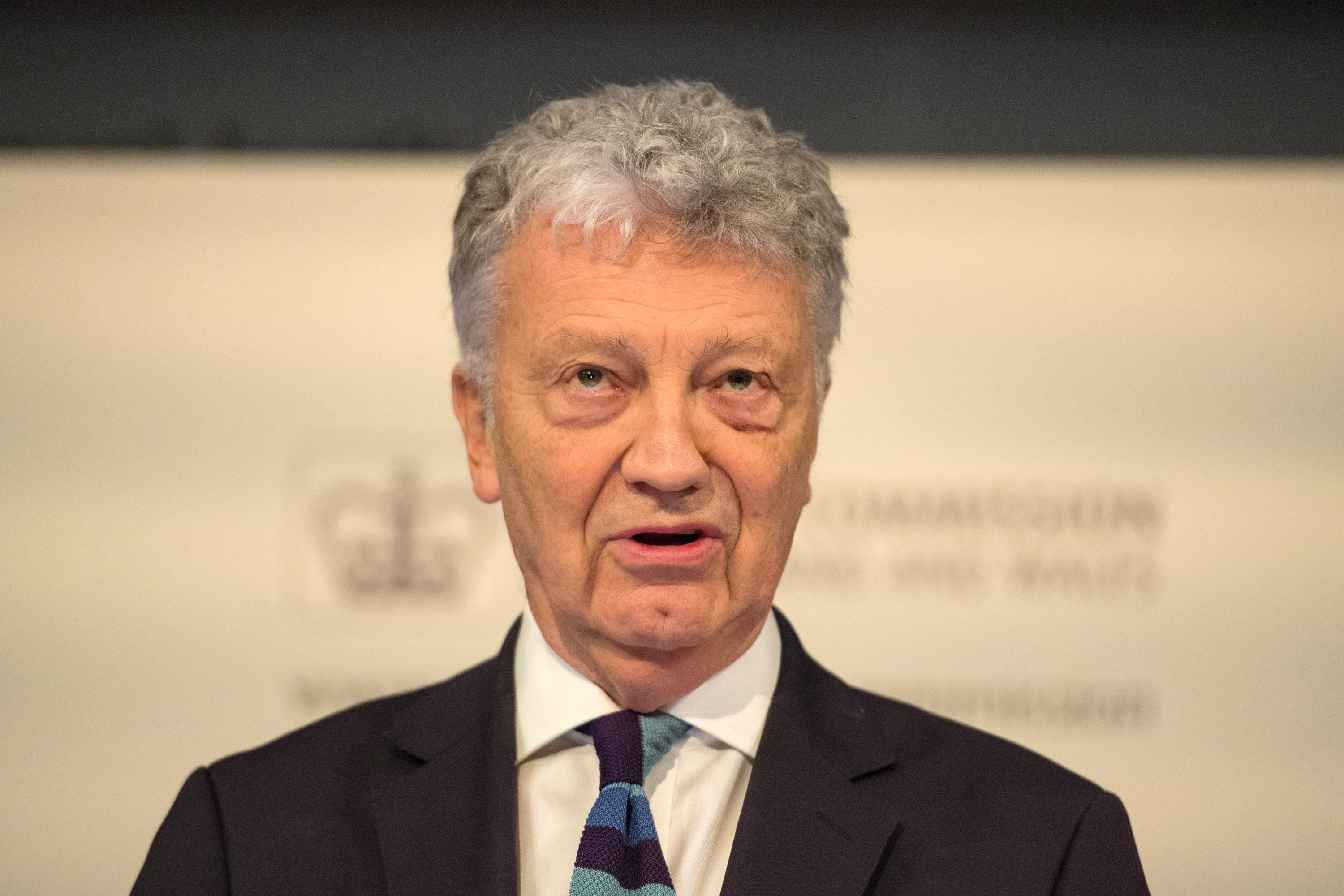Prevent review calling for focus on Islamists could make ‘Britain less safe’, critics say
Widower of murdered MP Jo Cox says security services should be left to ‘follow the evidence’

A review calling for the UK’s counterterror programme to focus more on Islamism rather than the far right and other threats could make “Britain less safe”, critics have said.
William Shawcross, a former Charity Commission head with close ties to the government, said the Prevent programme should be “recalibrated” to reflect that “the most lethal threat in the last 20 years has come from Islamism”.
But more suspected far-right extremists are currently referred to the intervention scheme than Islamists, and the number of incels has also been rising after the head of MI5 warned terrorism was “evolving” in the UK.
“Prevent must return to its core mission – countering all those ideologies that can lead people to committing or supporting acts of terrorism,” Mr Shawcross wrote.
“My research shows that the present boundaries around what is termed by Prevent as extremist Islamist ideology are drawn too narrowly, while the boundaries around the ideology of the extreme right-wing are too broad.”
Mr Shawcross suggested that Prevent was “out of kilter with the rest of the counterterrorism system”, because the majority of recent terror attacks and plots were carried out by jihadists, and that “all too often” people referred to Prevent had gone on to commit terror attacks.
The review, commissioned over four years ago, was boycotted by major charities including Amnesty UK over previous comments where Mr Shawcross called “Europe and Islam one of the greatest, most terrifying problems of our future”.
Mr Shawcross also serves as the government’s commissioner for Public Appointments and his daughter is the head of Downing Street’s policy unit.
Brendan Cox, the husband of murdered Labour MP Jo Cox, said the security services should be left to “follow the evidence” as the threats faced by the UK evolve.
Mr Cox, who has campaigned on behalf of those affected by terrorism since his wife was assassinated by a neo-Nazi in 2016, said the report’s conclusions would “make it easier for those wanting to undermine the programme”.
“Sadly, the appointment of William Shawcross to lead the review made it almost impossible for it to hold credibility right from the start,” he wrote in The Independent.
Mr Cox said the review had “set back” counterextremism in the UK, and that it was “worrying” that Muslim groups may feel less able to support Prevent.
Yvette Cooper, the shadow home secretary, said the report would “make it harder for counterterror police to do their job.
“Counterterror police and experts need to be able to follow the evidence on all kinds of terrorist and extremist threats, including Islamist, far right and other new and growing threats,” she added. “It is counterproductive to try and create a hierarchy of extremism.”
Mr Shawcross was appointed to lead the probe in 2020 after the previous reviewer stepped down amid legal action over alleged bias, and the report’s publication was repeatedly delayed amid internal rows over its content.
Despite several rounds of Home Office checks, the report incorrectly claimed that all UK terror attacks since 2019 had been “Islamist in nature”, omitting October’s firebombing targeting a migrant processing centre in Dover, and a 2019 knife rampage by a white supremacist inspired by the Christchurch mosque shootings.
The Muslim Council of Britain accused the report of “playing down the threat of far-right extremism” and said that if implemented, its recommendations “will make Britain less safe”.
Secretary general Zara Mohammed said: “What we see in the so-called independent review is a rehashing of divisive talking points determined at stigmatising Muslims and Muslim civil society. The predetermined outcomes of the review have been leaked to the media and by think tanks for the last few years.”
In the report, Mr Shawcross hit out at a “concerted campaign by some, including a number of Islamist groups, to undermine and delegitimise Prevent”, but called for the creation of a formal complaints system to address concerns over individual cases.

He also criticised Prevent material for listing “conservative commentators” among influences for the far right, saying they were “not appropriate subjects for Prevent’s attention”.
But in the same report, Mr Shawcross called for the government to do more to “counter non-violent Islamist extremism” and also extend Prevent to “civil disobedience and disruptive activities broadly associated with anarchism or causes tied to the extreme left”.
Ilyas Nagdee, Amnesty International UK’s racial justice director, dismissed the review as “riddled with biased thinking [and] errors”.
“Mr Shawcross’ history of ... comments on Muslims and Islam should have precluded his involvement in this ill-starred review in the first place,” he added.
“A proper independent review of Prevent should have looked at the host of human rights violations that the programme has led to - but these have largely been passed over in silence.”
Almost a third of people referred to Prevent in 2021-22 were children under the age of 15, and most cases are flagged by schools because of a legal duty to report potential extremism.
More than half of all people referred were signposted to other services, such as mental health, education and the police, a quarter was considered for ideological intervention and 17 per cent “required no further action”.
The report suggested that Prevent had become too focused on ideas of “vulnerability”, including mental health and social isolation, as drivers of radicalisation rather than ideology.
Mr Shawcross also called for the government to consider extending a legal duty to report suspected extremists to Border Force staff who process asylum seekers and jobcentres, and for government ministers to be given the power to “sign off all membership” for Prevent advisory boards.
The Home Office said it had accepted all 34 recommendations in the report, and would “scope extending the Prevent duty to Border Force, Immigration and the Department for Work and Pensions”.
The home secretary said: “Prevent will now ensure it focuses on the key threat of Islamist terrorism. As part of this more proportionate approach, we will also remain vigilant on emerging threats, including on the extreme right.”






Join our commenting forum
Join thought-provoking conversations, follow other Independent readers and see their replies
Comments